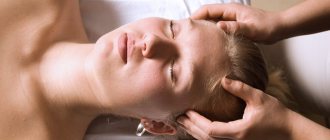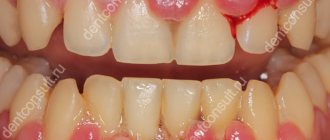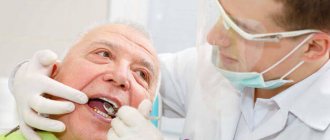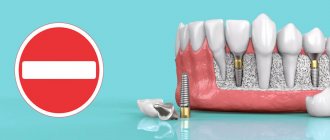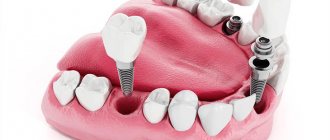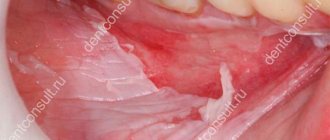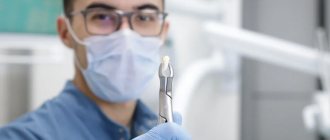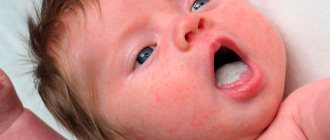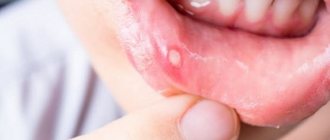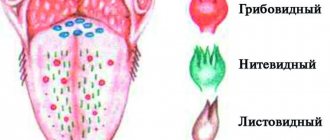Read in the article:
- How alcohol affects teeth
- Causes of toothache when drinking alcohol
- The dangers of drinking alcohol to relieve toothache
- How to relieve toothache after alcohol
It is not necessary to have thinned enamel to suffer from pain after drinking cognac, vodka or whiskey. Ethanol is a heavy poison and neurotoxin that undermines the immune system and affects the psycho-emotional state. Alcohol washes away calcium, which is part of the mineralized tissue of teeth. Because of this, people suffer from pain that is difficult to relieve with painkillers.
How does alcohol affect teeth?
There is a myth that vodka can disinfect the oral cavity and fight bacteria that cause caries or gum disease. In fact, the effect is the opposite - alcoholic drinks corrode the mucous membrane, which increases the likelihood of inflammation. Even low-alcohol cocktails wash away calcium in huge quantities, and dentin consists of it. Consequently, tissues suffer from a deficiency of this mineral and become brittle, which increases the likelihood of cracks and holes. As practice shows, alcoholics are 30% more likely to develop dental caries.
Teeth and gums also weaken because zinc, iron, phosphorus, and magnesium are additionally washed out. This causes bleeding gums. It is much worse that the soft tissues are destroyed, so the support of the teeth weakens. Increases the chance of falling out. Alcoholics face the problem of tooth loss in the third stage, when the body is in critical condition.
The effect of alcoholic drinks on the oral cavity
The main reason for the occurrence of xerostomia (or dry mouth) after drinking alcohol is the diuretic effect of alcohol, experts explain: when your body breaks down alcohol, with each standard dose of alcohol (which is about 100 ml of wine or 30 ml of a forty-proof drink) it leaves the body in urine In addition to what you drink, an additional 100 ml of liquid is excreted. People who drink alcohol frequently become dehydrated, which increases the risk of various side effects, including dry mouth and other health problems.
Damage to teeth
Saliva plays an important role in maintaining oral health: it regulates the acidity of the environment, washes away food debris and moisturizes soft tissues. In addition, as noted by employees of the Department of Therapeutic Dentistry of the Ural State Medical University, saliva has antimicrobial properties and inhibits the growth of bacteria. Remember that a deficiency of saliva can lead to plaque accumulation, oral thrush and gum disease, as well as tooth decay and even tooth loss. In particular, plaque and gum disease can cause other health problems or worsen existing conditions, such as diabetes. Additionally, as you probably already know, dry mouth can make it difficult to chew and swallow food, as well as irritate your tongue.
Causes of toothache when drinking alcohol
Alcoholic drinks affect the natural microflora of the oral cavity. Because of this, pathogenic bacteria spread, causing caries and gum damage. The sensitivity of tissues increases, so alcoholics cannot drink hot or cold drinks - pain immediately appears.
It is necessary to take into account the fact that alcoholic beverages contain acids. This includes wine, champagne, port, cognac, and cocktails. The acid burns the mucous membrane and thins the tooth enamel. Therefore, periodontal disease, caries, and erosion develop. The natural shade changes, the color becomes yellow-gray. If a person already has fillings, dentures, bridges or implants installed, they become fragile and wear out. Often, alcoholics' fillings fall out, which leads to critical consequences - pathogenic microflora leads to inflammation of the root, which subsequently causes tooth extraction.
It is much worse if a person has expensive implants and drinks strong drinks. The probability that the implant will fly out or will not take root is very high. In the future, the doctor is unlikely to be able to install a new implant. Therefore, after surgery you need to give up drinking 100%.
Dentists identify the following causes of acute pain after drinking strong drinks:
- Pulpitis.
- Hypothermia.
- Inflammation of the trigeminal nerve.
- Caries.
- Stress.
- Thinning of enamel.
- Angina pectoris.
- Root cyst.
If you experience any discomfort after eating, contact your dentist immediately.
Coffee
pH of black coffee
, according to this study, is
5.51
. An excellent pH value that makes your favorite drink not only pleasantly invigorating, but also safe for teeth in terms of their mineralization.
Moreover, this work provides information about some of the ability of coffee to resist tooth decay, but to obtain such a result, the drink must be strong, undiluted and hot. And without sugar or sweeteners, of course. That is, cappuccino and other options
, which involve adding third-party ingredients to coffee,
are unsafe for teeth
.
At the same time, you should remember about the ability of coffee to give your teeth an undesirable dark tint. And after teeth whitening, you should completely abandon this drink for quite a long period of time.
The dangers of drinking alcohol to relieve toothache
Often people want to save money on painkillers. They motivate this not only by savings, but also by safety. Supposedly, vodka is a pure product that does not contain dangerous chemicals. In fact, drinking alcohol before or after dental treatment only makes the situation worse. Firstly, the microflora deteriorates and the volume of pathogenic bacteria increases. Secondly, the enamel becomes thinner, which leads to cracks.
If you are planning a trip to the dentist, then drinking is prohibited. The reaction of anesthesia with alcohol is very strong, which can cause respiratory arrest or seizures. In this case, blood clotting is impaired, so there can be enormous blood loss and you will have to call an ambulance. It is much worse if the anesthesia does not work at all and the tooth is pulled out without pain relief. The terrible pain can cause a person to lose consciousness.
Should you drink alcohol before visiting the dentist?
24.Nov.2017
Every day, millions of people around the world turn to dentists and dentists. Many patients are terrified of everything related to dental intervention, so any manipulation performed by the doctor is perceived in an exaggerated form. The patient perceives even the slightest discomfort as “hellish” pain. Attempts to perform “double” or “triple” anesthesia often do not lead to the desired result. Moreover, the adrenaline described above, produced at such moments, plays no less a role than psychological factors, creating obstacles to full anesthesia.
The influence of alcohol.
Some people, in order to cope with fear, drink alcohol before visiting the dentist, so to speak, “for courage.” However, the influence of alcoholic beverages fundamentally interferes not only with the work of the doctor, who is sometimes forced to cope with the client’s inappropriate manifestations, but also does not allow the anesthetic to block the pain impulse. Sensitivity can only be “removed” with increased doses, or cannot be eliminated at all. Therefore, with the so-called “acute” intoxication, anesthesia practically does not occur. In “chronic” alcoholics, it is generally not possible to achieve full anesthesia. The inattentiveness of a patient under the influence of alcoholic beverages can lead to him forgetting the doctor’s recommendations, which can result in a number of complications. Rapid absorption of alcohol entails vasodilation processes. In addition, alcohol stops the effect of drug anesthesia almost instantly; it changes many properties of the blood, resulting in the risk of swelling and prolonged heavy bleeding. And poor blood clotting rates are extremely dangerous, for example, during tooth extraction. The protective functions of a blood clot, if formed, will also be especially low, since it will be softer. There is a high risk of infection, prolonged healing of the hole, and acute painful sensations.
How to overcome fear?
In cases of severe anxiety, it is worth taking a weak sedative (tinctures of motherwort and valerian) an hour before the procedure. Dentists recommend that adults with a high degree of anxiety take tranquilizers, for example, Tenoten. The regimen for using this drug is recommended to be coordinated with your doctor.
And remember!!! If you drank an alcoholic drink immediately before your dentist appointment, you may simply be denied treatment. A doctor officially has the right to refuse to help a person who is intoxicated.
Volosevich P.V. dentist-therapist
BU "Nyagan City Dental Clinic"
How to relieve toothache after alcohol?
Visit your dentist right away to have your mouth examined and take photographs to evaluate the condition of the roots. No folk methods will help solve the problem, much less another glass of vodka. It is important to deal with the root cause. If after complex treatment a person does not stop drinking, there will be serious consequences.
You will get rid of alcoholism 100% anonymously. Inpatient and outpatient treatment programs have been developed, including:
- Detoxification – removing toxins from the body, replenishing mineral/vitamin deficiencies, restoring water-salt balance.
- Medical and social rehabilitation - work in groups, drug therapy, visits to a psychologist.
- Social and psychological rehabilitation.
- Social adaptation.
You can get a free consultation and make an appointment with a narcologist by calling 8.
Fruit juices and nectars
According to data, most juices have a low pH
, so they are dangerous for teeth. For example,
- Orange juice pH is about 3.5
- Pineapple juice pH is about 3.5
- pH of grape juice is about 3.2
But apple juice’s pH value is in perfect order: 5.5.
Nectars, by the way, are even more dangerous than juices, since they contain a high sugar content, which is harmful to teeth without any “buts”. So if you still want to drink juice or nectar, dilute it with water by about half.
Alcohol after implant placement
After such a serious operation as implantation, you want to relax and praise yourself for the stress you have experienced. However, we do not recommend “washing” a new tooth, and there are very good reasons for this.
- Alcohol slows down the healing process and destroys bone tissue.
- Irritation of the mucous membrane occurs.
- If alcohol-containing drinks get into an open wound, they can cause a burn or severe pain.
- Bleeding may occur as the blood vessels dilate under the influence of alcohol.
- The risk of complications increases: hematomas, peri-implantitis, implant rejection.
Before drinking alcohol, weigh the pros and cons. Momentary pleasure from alcohol can negatively affect the entire result of treatment, including implant rejection.
The effect of alcohol on the cardiovascular system.
Once in the human body, passing through the stomach and intestines, alcohol enters the bloodstream, where the harmful effects of alcohol on the human body continue. Alcohol is a hemolytic poison and promotes the destruction of red blood cells, which can lead to toxic hemolytic anemia. Ethanol can cause cardiac arrest. Excessive alcohol consumption increases LDL cholesterol and leads to the development of alcoholic cardiomyopathy, arrhythmias, atherosclerosis, and coronary heart disease. The listed changes are observed on average with consumption of more than 30 g of ethanol per day.
Dysregulation of blood sugar is one of the consequences of alcohol consumption. As a result, blood sugar can either noticeably decrease or increase, which will lead to irreversible consequences: problems with blood vessels, diabetes, disruption of the brain and nervous system.
The effect of alcohol on the brain and nervous system
The brain and nervous system suffer more than any other organ from alcohol. Ethanol has a pronounced organotropic effect: in the brain its concentration exceeds that in the blood. Alcohol affects all biochemical and neurotransmitter systems of the brain. This explains the occurrence of a state of intoxication (euphoria, sedation, or vice versa excitement), and with prolonged use of physical dependence on alcohol.
Chronic alcoholism can lead to a decrease in brain volume. With prolonged alcohol consumption, organic changes are observed on the surface of the cerebral cortex. These changes occur in areas of hemorrhage and necrosis of areas of the brain substance. When drinking alcohol, there may be problems with the perception of the surrounding world, with attentiveness and memory, psyche and thinking, and mental development. A large dose of alcohol can put a person into a coma, and death is not uncommon.
Stomach and pancreas.
Disorders of the gastrointestinal tract are an indispensable attribute of acute alcohol intoxication and post-intoxication state. They manifest themselves as acute pain in the stomach and diarrhea. Pain in the stomach is associated with damage to the mucous membrane of the stomach and small intestine, especially in the duodenum and jejunum. Alcohol has a destructive effect on the cells of the inner surface of all digestive organs, damaging and destroying them, leading to burns, and as a result, necrosis of their tissues. Decreased lactase production, as well as impaired absorption of water and electrolytes from the small intestine, leads to diarrhea. Even a single consumption of large doses of alcohol can lead to the development of necrotizing pancreatitis, which is often fatal. Excessive alcohol consumption increases the likelihood of developing gastritis and stomach ulcers. Also, long-term alcohol consumption can cause stomach cancer, esophageal cancer and colorectal cancer.
What you can do to prevent a prosecco smile:
- Use a good toothpaste for sensitive teeth, as well as professional products for restoring tooth enamel, which your dentist or hygienist can recommend to you.
- After drinking the drink, brush your teeth properly. But not right away, when the enamel is still very sensitive and soft.
- If you drink carbonated drinks, drink them through a straw so that the liquid does not get on your teeth.
- Drink less prosecco,
carbonated drinks and sugary drinks. After eating them, be sure to drink a glass of water. - When choosing alcoholic drinks, avoid carbonated, sweet and bubbly drinks.
- Chew sugarless gum to stimulate salivation and protect your teeth.
